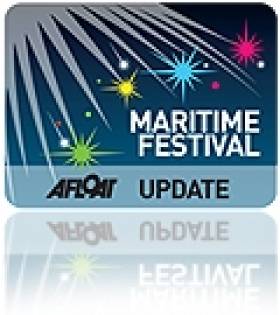Displaying items by tag: Sally McKenna
#maritimefestival – Food critic Sally McKenna, TV chef Darina Allen and food writer Dr. Prannie Rhatigan are among the participants in the 2014 Burren Slow Food Festival, which takes place tomorrow and Sunday.
Supported by the Burren & Cliffs of Moher Geopark and also featuring members of the Burren Food Trail and the Burren Adventure, the 8th annual festival is being held at various venues throughout Lisdoonvarna, Co. Clare.
As Afloat.ie reported recently, Seaweed is a common theme across the Festival Programme this year.
Author of "Irish Seaweed Kitchen", Prannie Rhatigan GP is hosting a demonstration and talk on how the thousands of tonnes of seaweed washed up on Irish coastline each day can be exploited for their potential as a foodstuff.
Meanwhile, Sally McKenna of John and Sally McKennas' Guides (formerly The Bridgestone Guide) and Stefan Kraan, author of "The Science and Gastronomy of Umami", will be discussing the benefits for Ireland's seafood industry in harvesting seaweed.
The festival also features food sampling of local artisan foods, a chance to meet local producers and growers, engage with fellow foodies, and enjoy cookery demonstrations from well-known chefs including Jess Murphy, Kai Restaurant, Galway; John Sheedy, Sheedy's, Lisdoonvarna; and Aidan McGrath, Wild Honey Inn, Lisdoonvarna.
Other highlights of the weekend include a talk by Slow Food Ireland President and chef Darina Allen; a Wild Food Foraging Walk hosted by Oonagh O'Dwyer from Wild Kitchen in Lahinch; and a demonstration of the essential skills of making handcrafted fine chocolates by Burren Chocolatier and Burren Food Trail Kasha Connolly.
The main festival banquet on Saturday night will be prepared by Vivian Kelly of Kierans Kitchen at the Roadside Tavern who will serve Gleninagh Lamb, Burren Smoked Irish Organic Salmon, desserts from Fabiola's Pâtisserie and wines from Burren Fine Wine & Food.




























































